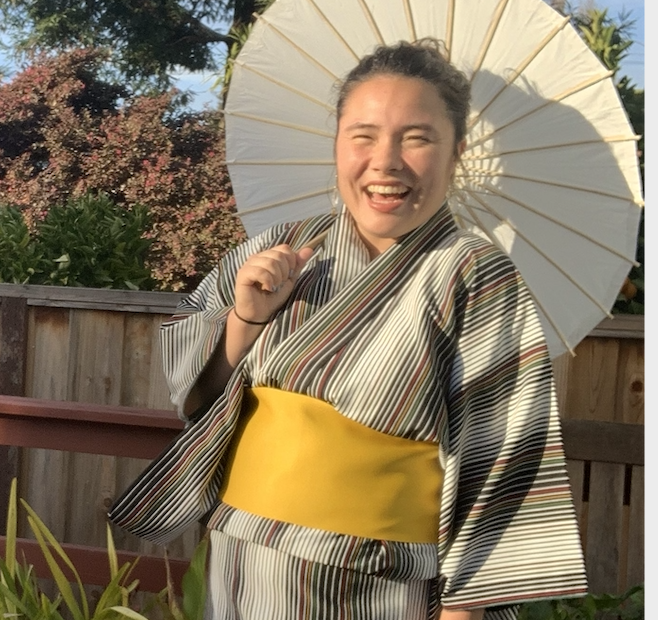The summer of 2019 was the best summer of my life with the Seeding Change fellows, and it was right before the pandemic. At the beginning of 2020, I started working at Asian Pacific American Student Development (APASD), a student center at UC Berkeley that was born out of the legacy of the Third World Liberation Front (TWLF). Shortly thereafter, I went on to start my Master’s at San Francisco State in Asian American Studies. The APASD functions as a spaces that centers self determination, interdependence, restorative healing, and transformation for AA/PI/SSWANA students and their communities. As a Master’s student, I am learning to apply the radical and revolutionary movement history into my pedagogy and community work, similar to the work my professors bring to the community. It is awesome to learn from professors and follow their lead in applying Ethnic Studies into the community. Some of my professors are leading the work in a statewide coalition called Liberated Ethnic Studies Curriculum, which I am also a part of. I am currently learning to apply Ethnic Studies into the community. Education wise, I am seeing how communities address state and structural violence. I have been developing skills to get people active and organized. I have been moving myself to be more engaged in conversations of abolition, land back, and settler colonialism, from a reactionary stance to future building and our collective vision.
Seeding Change more clearly articulated what it means to organize and be in the movement for social justice. That helped me decide on studying Ethnic Studies for my Master’s. I wanted to continue to speak about what elders in organizing have been advocating for, resistance from the state. How do we remember the original mission of the TWLF, knowing that it is unfinished and there’s a lot of work left to do? I am also still refining my responsibility to the community and actively doing this work with my organization, you can find them on instagram at @nikkeiresisters.
There are two levels to take away from Seeding Change. When my cohort and I were together, there was power in being able to learn together. The practice of a beloved community, a community of shared and intertwined struggle, and this space was a reimagination of relationships towards each other. My previous work was focused on hierarchical and capitalist which made it hard to feel like I was organizing against this. Seeding Change was filled with love and hope. I learned that it is important to know that we are in struggle, but can do it with love. There is a quote that I recently saw that said “organizing is both fire and gentleness,” and I have not experienced gentleness until Seeding Change. The second takeaway is understanding longevity of Asian American struggle which I think so important now as current mainstream interpretations of what Asian American communities are needing erases this both intentionally and unintentionally. Seeding Change’s connections to these orgs highlights our responsibility and connection to a movement that goes beyond increasing hollywood representation or increasing policing
The work people are doing is important no matter how small. Some people continue the model minority myth, but that is linked to our struggle. This program makes this link clear, while structures try to invisibilize and diminish its value. Affirmations are not the norm, but affirmation is what makes Seeding Change so loving, why isn’t that the norm? I end this with a quote from Grace Lee Boggs that “we are the leaders we have been looking for.”
Other than organizing, I have been finding joy in gardening and plant work. This tender feeling of engaging with the land and reconnecting with the self and body. I have also been surrounded with pets, my neighbor’s cat and taking my dog on a walk. I also watch Netflix and just finished watching Buffy and the Chinese drama The Glamorous Imperial Concubine. Sometimes I watch shows that I don’t align with just to watch them.
